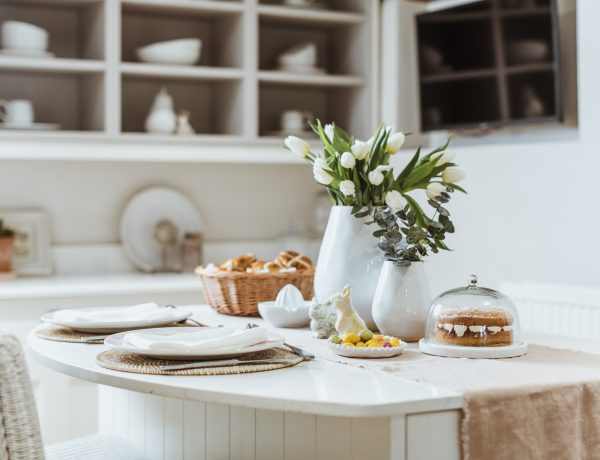Top Tips for Cooking and Eating Sustainably
We all try to do our bit for the environment, and one key way to live a green lifestyle is through the food we consume. Being environmentally conscious when it comes to food can seem daunting and restrictive, with people fearing their whole diets have to change. However, cooking and eating green can be as exciting as it can be easy! We’ve teamed up with sustainable foodie expert and recipe book writer, Sara Kiyo Popowa, who shares her top tips on cooking and eating sustainably.

The simple rules to remember
These simple rules are good to remember when cooking and eating sustainably, especially if it’s something you’re looking to get better at.
- Try to consume less animal-derived foods: that is meat, dairy, fish and eggs
- Discover new sources of protein, carbs and fats. Textures and flavours are exciting! For example, pulses, grains, seeds and nuts, seaweeds, spices and condiments from world cuisines
- Try to buy less plastic packed foods
- Buy and consume fewer ready-made meals and ingredients
- Shop local and do small scale shopping via farmers markets, veg boxes and local green grocers
Shop one day a week
If it is possible for you to do so, try and do your grocery shopping in one go once a week, as opposed to going multiple times throughout the week. One way we waste time AND food is because we only buy food for one specific recipe. A way around this is to think of ingredients with multiple uses in mind and buying the ingredients all together in one shop will help with this.
Subscribe to a veg box
Subscribing to a veg box is a great way to help the environment as well as your local farmers. In order to reduce food waste and make the most of it, make a pact with yourself to use up all of the vegetables in the box. This can be a fun challenge, especially if you’re not as familiar with some of them! It can lead to new recipes and new favourites. You can also rediscover the beauty of the old seasonable vegetables by using them in different ways.
One of the reasons people avoid getting veg boxes is because they worry they’ll get bored. If this does happen, you can change your box! There are lots of different boxes available right now and many come with options to add groceries too, since many former restaurant suppliers are now also supplying private households. In short, there’s never been a better time to invest in a veg box.

Buy your faves in bulk
Everybody has those food and drink items that they consume a lot, whether it’s a routine snack or an ingredient that goes in most meals. One way to save the environment and also save money is by identifying these whole food staples and buying these items in bulk – this can be done via many online sellers. It saves on packaging and energy in production, as well as saving you money.
If you feel you don’t have the storage space for large volumes of food, you can make more space in your kitchen by getting rid of things you never use. Making your kitchen more compact and efficient is a very satisfying task and can be great fun to do.
Eat in-season produce
Most fresh foods have a specific season in which they are ripe and easy to attain. Eating seasonal produce doesn’t just benefit your body, but it will also support the local farming economy and the local landscape through supply and demand. Seasonal veggies will provide your body with what it needs in that season, for example cooling, refreshing fruits in summer and starchy carby root vegetables in winter.
Remember that if it’s benefitting the health of our planet, it’s most likely benefitting your physical and mental health too.

Commit and be motivated
It’s important to find your own motivation to why you want to cook and eat more sustainably. Once you have that, it’s much easier to stick to the changes you will have to deal with.
Shopping, cooking and eating more sustainably may seem like an effort, at least to begin with. But in the long run, you will find the areas where you can easily make changes. You may see how it starts having a positive impact on areas of your life and parts of yourself you may have never expected before.
Being sustainable with your food gives you a greater connection to your food and where it comes from and a greater connection to your own body and the world in general. You develop a greater sense of being part of, and positively contributing to, something positive in the world and for our future.
Remember that we’re on this planet for life, and we can make it count! We are in this together and no – we are not small. Every small positive contribution and positive intention counts towards the greater good.
Focus on what you have, not what you don’t have. If you are reducing something, make sure you have something that excites you to replace it. Enjoy that new perspective, that new space, that sense of being in charge.



No Comments